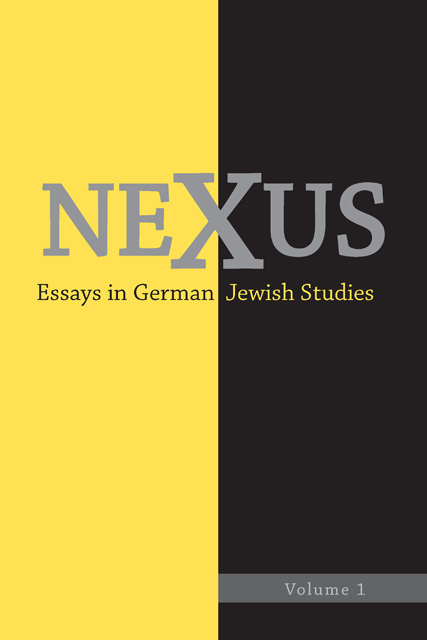Introduction
Published online by Cambridge University Press: 10 February 2023
Summary
THIS BIENNIAL PUBLICATION is a testament to the vitality of scholarship in the areas of German Jewish Studies. It began, however, as a mere hypothesis: we convened a group of scholars working on German Jewish topics and simply started a conversation. We had sensed that sessions at other major national conferences — such as those of the Modern Language Association, the German Studies Association, and the Association for Jewish Studies — were no longer sufficient to meet the growing needs of the field. But we frankly weren’t sure. We would have been content to see colleagues exchange scholarship on an ad hoc basis. But as a result of the first German Jewish Studies Workshop (now a biennial event, with a second highly successful installment already under our belts), the conversations began to proliferate geometrically. Colleagues wanted to develop the papers they presented and share them with a broader readership. Nexus was born.
While this account makes the process seem a lot simpler than it actually was, it may suffice as a slightly mythologized creation story. At any rate, Nexus, we believe, answers a prior need. While there is ongoing discussion about the provenance and methods of German Jewish Studies — even a debate on what to call it — there is no doubt about the plethora of compelling scholarship that comes under this heading. Our approach has been — and remains — shamelessly inductive, which means we are learning about, inventing, if you will, German Jewish Studies as we go along. From the outset, however, it has been clear that the harvest is rich enough to require a forum for regular publication.
German Jewish Studies — and therefore Nexus — is a big, hospitable tent. It embraces a wide gamut of scholars, from medievalists and early modernists to literature and film scholars, critics of Holocaust museums and memorials, and commentators on contemporary art. Nexus fills a gap left in part by the venerable Leo Baeck Yearbook. While of inestimable value, especially to scholars of German Jewish Studies, the latter simply cannot accommodate the profusion of research particularly in the area of cultural studies, which has taken off in the last decade.
- Type
- Chapter
- Information
- Nexus 1Essays in German Jewish Studies, pp. 1 - 4Publisher: Boydell & BrewerPrint publication year: 2011



